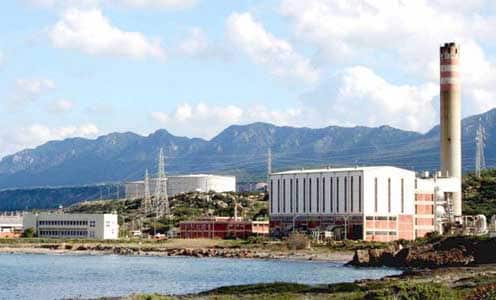A shipment of 12,000 tonnes of diesel is expected to arrive in the north on Wednesday to power the Teknecik power station, as repair work continues on its broken and dysfunctional generators.
According to Kibris newspaper, the diesel supply is anticipated to meet the north’s electricity needs for about two weeks.
This comes after the north’s electricity authority, Kib-Tek, announced on Tuesday evening that Teknecik’s “generator number 8”, which had been out of operation for four years, has been successfully restored.
Repairs to the generator had been carried out by workers from Turkey’s state-owned Electricity Generation Company (Euas), after the Turkish embassy in the north had announced a seven-person delegation had arrived in Cyprus on Saturday to carry out the work.
However, questions remain over apparent differences between the timeline of events offered by authorities in the north and by trade unions.
Kib-Tek employees’ trade union El-Sen leader Ahmet Tugcu told newspaper Yeni Duzen on Monday that the team from Euas had arrived on the island a month ago.
He also dismissed claims that the fuel’s early arrival was ahead of schedule, stating, “Unfortunately, this is also a lie. The fuel was supposed to arrive on the island on Saturday. The Turkish Petroleum International Corporation (TPIC) did not accelerate the transfer of fuel.”
It will be hoped that Wednesday’s arrival will provide Teknecik with higher quality fuel than had been seen on July 26, with it having been near universally accepted that poor quality fuel sent during that shipment caused many of the malfunctions seen at Teknecik since then, as well as the clouds of black smoke billowing from its chimney.
Tugcu told Yeni Duzen that the fuel injectors purchased over the weekend by workers from Turkish private energy company Aksa had all broken due to the poor-quality fuel, causing generators to frequently break down and require restarting.
The issue of fuel quality seems to have been implicitly acknowledged by the ‘government’, too, with a cabinet decision on Saturday having given Kib-Tek a series of exemptions to the north’s public procurement law.
In short, this decree will allow Kib-Tek to carry out emergency purchases of fuel as and when needed and outside of regularly scheduled purchases, thus allowing for emergency purchases in the event that poor-quality fuel is purchased again in the future.
Tugcu had described this decree as a “180-degree turn” following accusations of “sabotage” on the part of ‘prime minister’ Unal Ustel last week.
The situation escalated last Thursday night at Teknecik, where El-Sen members attempted to block Aksa workers from entering the power station for repairs.
El-Sen has long opposed Aksa’s involvement in the north’s power supply, particularly what they perceive as efforts to increase Aksa’s presence at Teknecik and within the publicly run side of the north’s grid.
The confrontation between Ustel and Tugcu turned physical that night, with Tugcu being arrested and then released. Video footage appeared to show Ustel calling him a “bastard.”
However, Ustel insisted on Tuesday that he had not changed his tune, saying the moves he was making were being done so “in line with the promise we made to our people” on that night.
“We will permanently sole the electricity problem by ensuring energy security in cooperation with the Republic of Turkey,” he said.
He added, “we will protect Kib-Tek and keep it alive, for it is the property of our people.”
Additionally, Ustel met with the Turkish ambassador in the north, Yasin Ekrem Serim, to discuss the possibility of constructing an undersea electricity cable to link the north to Turkey’s electricity grid. Ustel expressed optimism, saying, “I believe the energy problem experienced in our country will become history in a very short time.”
The cable could be operational as early as 2028, according to Ustel, while Turkish Cypriot leader Ersin Tatar said its completion would “mark a new era.”







Click here to change your cookie preferences